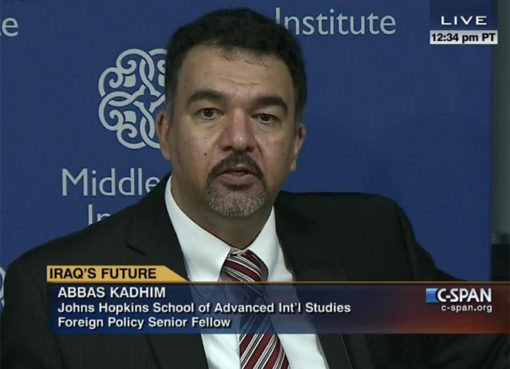Summary
- The Popular Mobilization Forces (PMF) continue to puzzle policymakers inside and outside of Iraq. Following the territorial defeat of the Islamic State (ISIS), PMF networks have developed into significant security, political and economic forces that compete for power in the Iraqi state. At the heart of unsuccessful attempts to understand, engage or navigate this dynamic is a fundamental misreading of the nature of both the Iraqi state and the PMF. The Iraqi state is best understood as a network of power and the PMF as an array of forces connected in this network.
- Despite efforts from its senior leaders, the PMF is not a coherent, integrated organization. Instead, it remains a series of fluid and adaptive networks that vary in horizontal (leadership coherence) and vertical (ties to a social base) structure. Each network’s structure sheds light on its strategies, capabilities and connectivity to the state. Some of these networks are closely linked to neighbouring Iran.
- PMF networks enjoy a symbiotic relationship with Iraq’s security services, political parties and economy. Their members include not only fighters, but also parliamentarians, cabinet ministers, local governors, provincial council members, business figures in both public and private companies, senior civil servants, humanitarian organizations and civilians.
- The connectivity of PMF networks reveals the true nature of the Iraqi state, which does not fit the neo-Weberian or Westphalian ideals that conflate formal government institutions with state power. PMF networks enjoy state power – they are integrated into Iraqi politics and control a social base – but they do not necessarily always sit in a formal government.
- Policymakers looking to reform or restrict the PMF have relied on a series of options: divide the constituent groups against each other, build alternative security institutions, impose sanctions on individuals, or strike with military force. Yet, these options have failed to reform PMF networks or the Iraqi state. This paper argues that these options have not been guided by a clear and coherent strategy that navigates reform programmes based on the Iraqi state and PMF network structures and nodal connections.
- Engaging with PMF networks should be informed by two principles: (a) the nature of the network will determine its strategies, capabilities and role in any reform programme; and (b) the connectivity of the network to other Iraqi state actors means that any approach needs to focus on key structural challenges. This approach can help policymakers better anticipate reactions when they implement reform policies.
(*)Senior Research Fellow, Middle East and North Africa Programme; Project Director, Iraq Initiative
Click on following link to download the full report as PDF file
Renad Mansour- The Popular Mobilization Forces -Report








Comment here